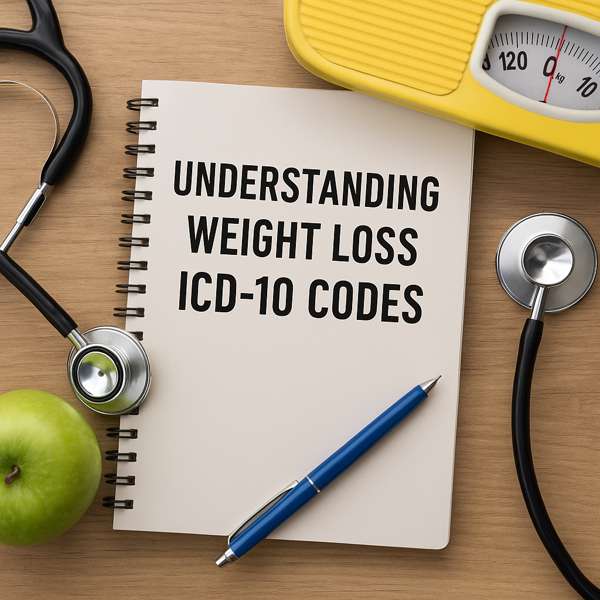
Whether you’re a medical professional, billing specialist, or patient navigating claims, understanding weight loss ICD-10 codes is key.
In this article, we’ll break down what ICD-10 codes are used for weight loss, how to apply them, and what you should know for accurate recordkeeping.
Understanding ICD-10 for Weight Loss
ICD-10 stands for the International Classification of Diseases, 10th Revision.
Each diagnosis is assigned a unique code, which is used for:
- Submitting claims to health providers
- Tracking public health trends
- Communicating diagnoses between professionals
Top Codes Used for Documenting Weight Loss
Weight loss can be intentional or unintentional — and each situation has a specific ICD-10 code.
Key codes include:
- Used when weight loss is unexplained or unintentional
This code applies when a patient loses a significant amount of weight without trying, often due to illness.
- Z71.3 – Dietary Counseling and Surveillance
Often applied in cases involving nutritional intervention or guidance.
- Z72.4 – Inappropriate Diet and Eating Habits
- Used in contrast to weight loss when monitoring obesity treatment progress
- E43 – Unspecified Severe Protein-Calorie Malnutrition
Clinical Use of R63.4
R63.4 is the most commonly used ICD-10 code for weight loss, but it must be applied correctly.
- There is no intentional diet or fitness program involved
- A known condition doesn’t fully explain the weight change
- Used as part of diagnostic workup
Important Notes for Coding Accuracy
To avoid claim denials or coding errors:
- This determines whether R63.4 is appropriate
- Document related symptoms or conditions
- Support your claim with a full picture
- Be sure they make sense in context
Coding for Counseling and Support Services
If you’re coding for a structured weight loss program or health coaching, consider using these Z-codes:
- Z71.3 – Dietary Counseling
- Z76.89 – Person Encountering Health Services for Other Reasons
- Used in early evaluation settings
These codes can support insurance claims for wellness, prevention, and obesity treatment plans.
Final Thoughts on Weight Loss ICD-10 Codes
Using the right ICD-10 code for abnormal loss of weight weight loss is non-negotiable for clear documentation and proper billing.
To summarize:
- R63.4 = Unintentional weight loss
- Z-codes = Counseling, prevention, and health maintenance
- Use when weight loss is tied to illness
When in doubt, document fully and consult with a certified coding professional.